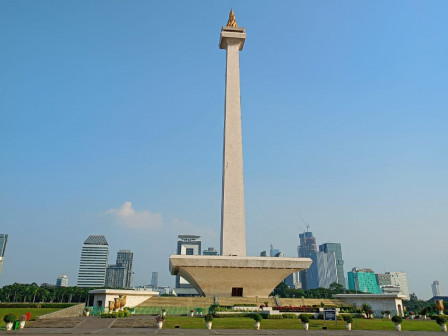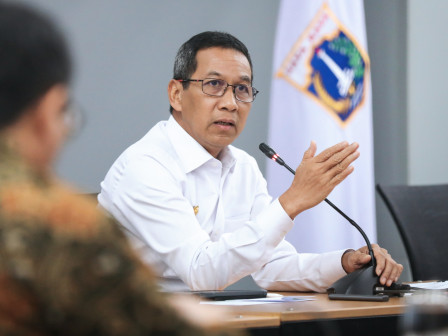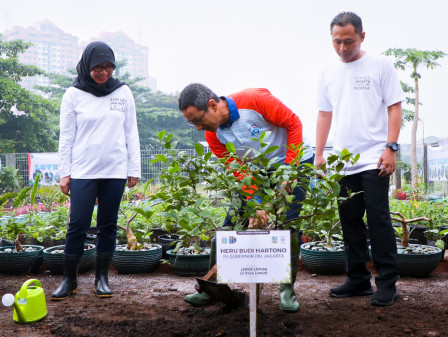Air Quality in Jakarta is in Medium Category
Reported by Aldi Geri Lumban Tobing | Translated by Nugroho Adibrata
The Jakarta Air Pollution Standard Index (ISPU) figures are in the medium category for the last three days, precisely from August 19 to 21, 2023.
This policy is implemented in addressing the problem of air pollution in Jakarta
Based on monitoring results of five Air Quality Monitoring Stations (SPKU) belonging to the Jakarta Environment Agency (LH) and one SPKU for Ministry of Environment and Forestry in the GBK area, the majority shows air quality in Jakarta in the medium category.
Jakarta LH Agency Head, Asep Kuswanto said the parameters for measuring air quality on the Jakarta Low Emissions website, namely https://rendahemisi.jakarta.go.id, consist of particulate matter (PM2.5, PM10), Sulfur Dioxide (SO2), Nitrogen Dioxide (NO2), Carbon Dioxide (CO), and ozone (O3).
Here is PT Transjakarta's Effort to Boost Air Quality ImprovementAccording to him, the air quality data was taken from the Air Quality Monitoring System (AQMS) installed by the Jakarta Provincial Government.
"This website can help the public stay informed about the level of pollution around them in real time," he expressed, Monday (8/21).
He explained the Jakarta Government had taken quick steps and the right attitude, namely the implementation of 50 percent WFH for ASNs for two months from August 21 to October 21, 2023.
"This policy is implemented in addressing the problem of air pollution in Jakarta," he explained.
With the trend of deteriorating air quality, the Jakarta Government is increasingly tightening its efforts to reduce pollution sources in Jakarta.
He assessed that air pollution in Jakarta is influenced by various sources of emissions that cause pollution, both from local sources such as transportation and residential areas, as well as from regional sources from industrial areas near Jakarta.
He added Jakarta has Gubernatorial Regulation Number 66/2020 on Motor Vehicle Exhaust Emission Tests, Number 76 /2020 on Traffic Restrictions with an Odd-Even System and Governor's Call Number 66/2019 on Air Quality Control, to reduce sources of air pollution emissions.
"Some of the policies that have been tightened to deal with declining air quality include increasing emission testing activities to reduce sources of pollution from the transportation sector and monitoring emissions from the industrial sector," he closed.





